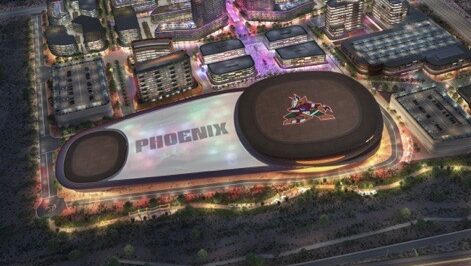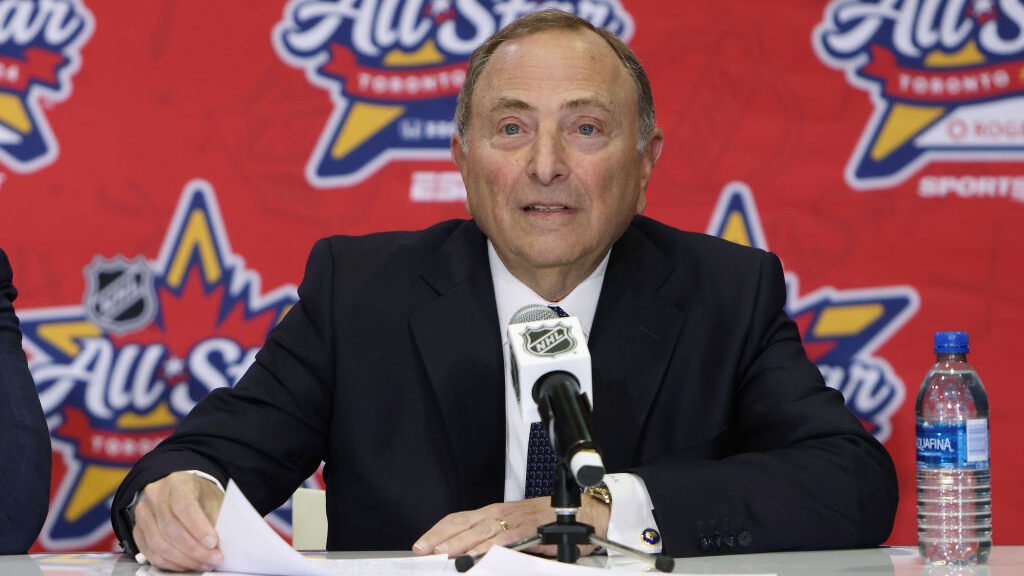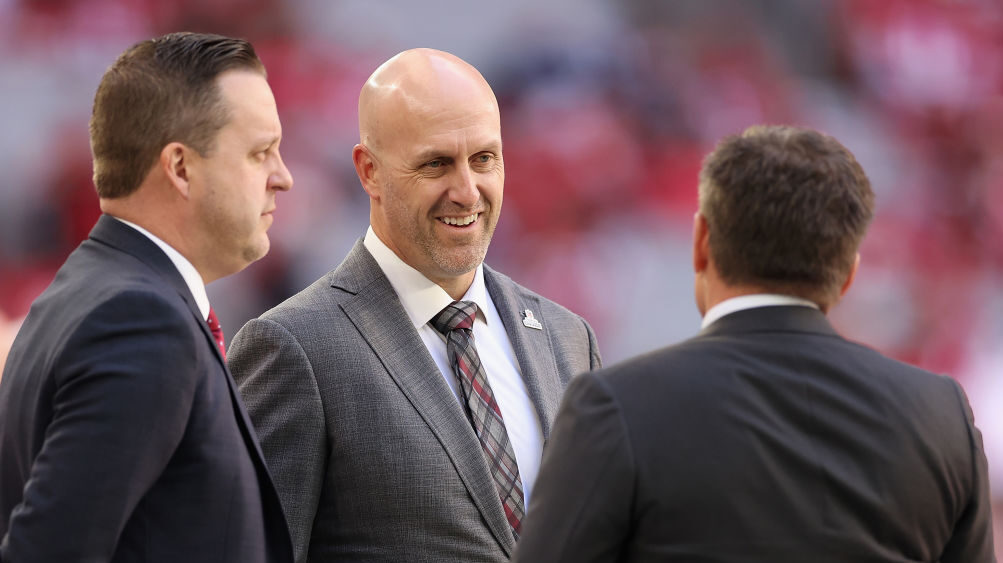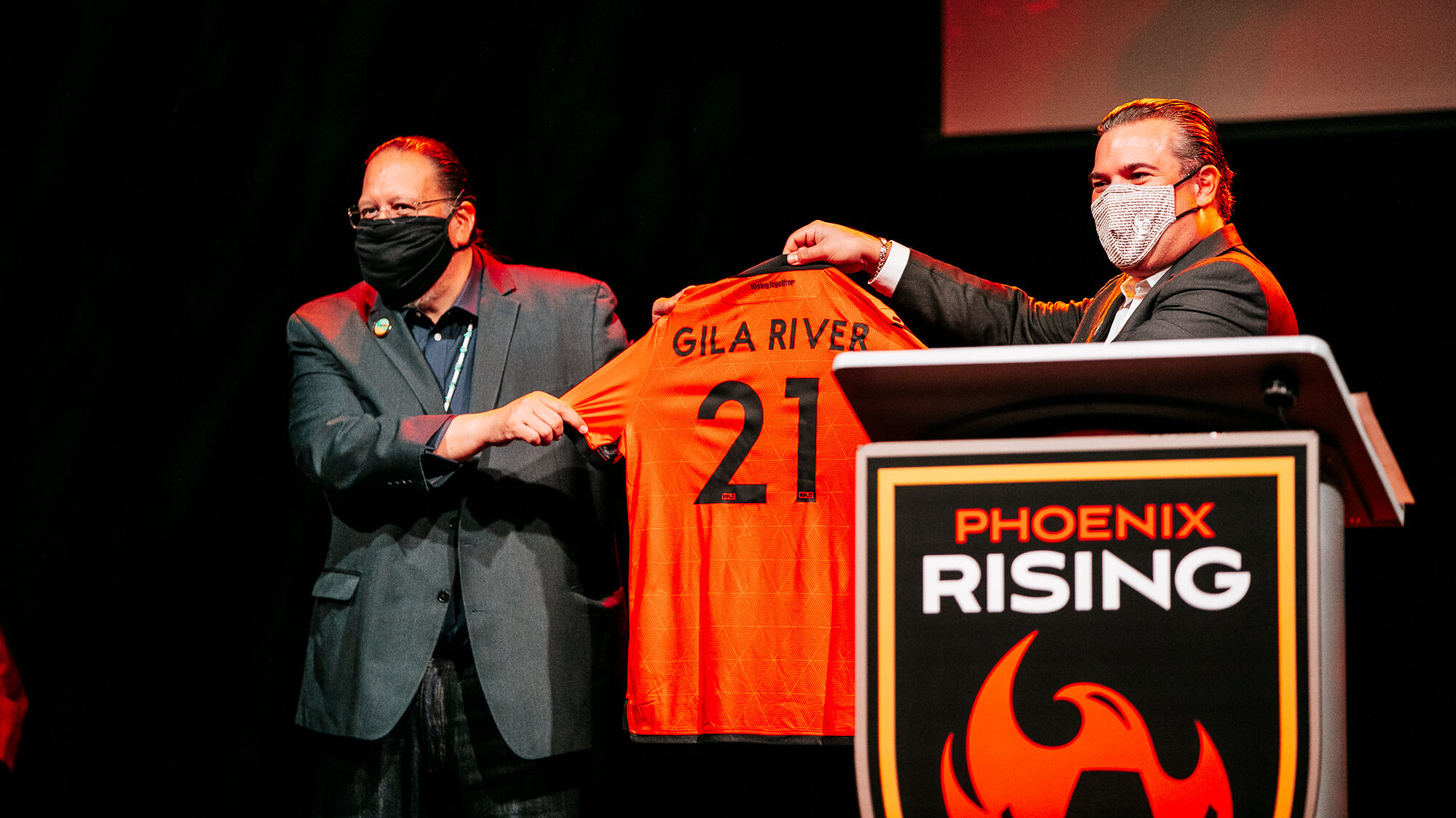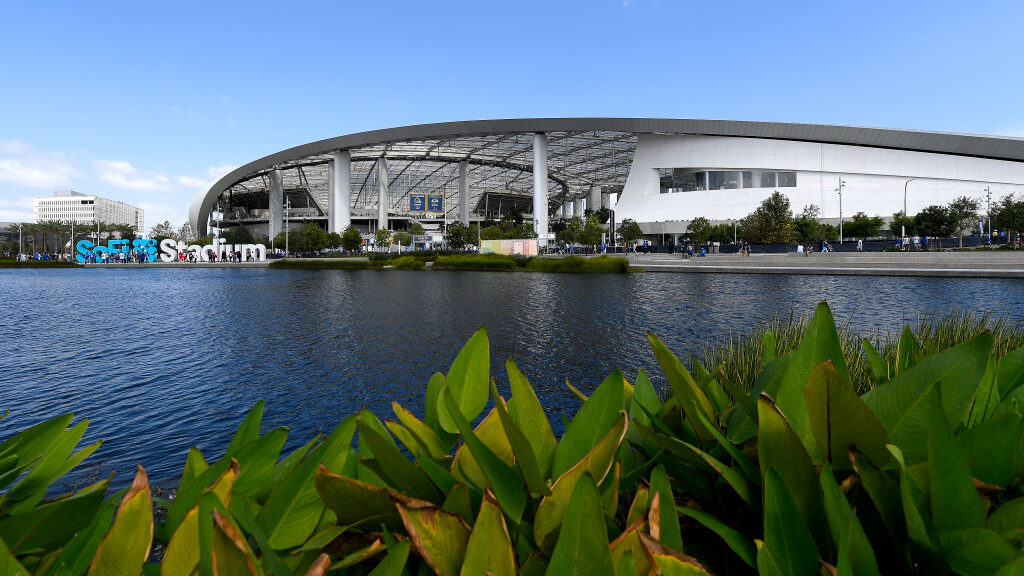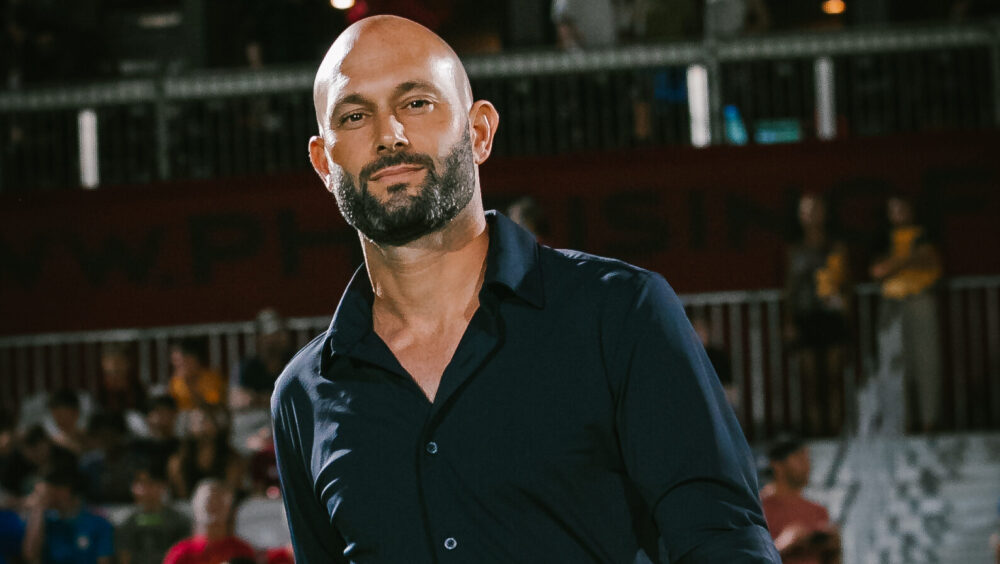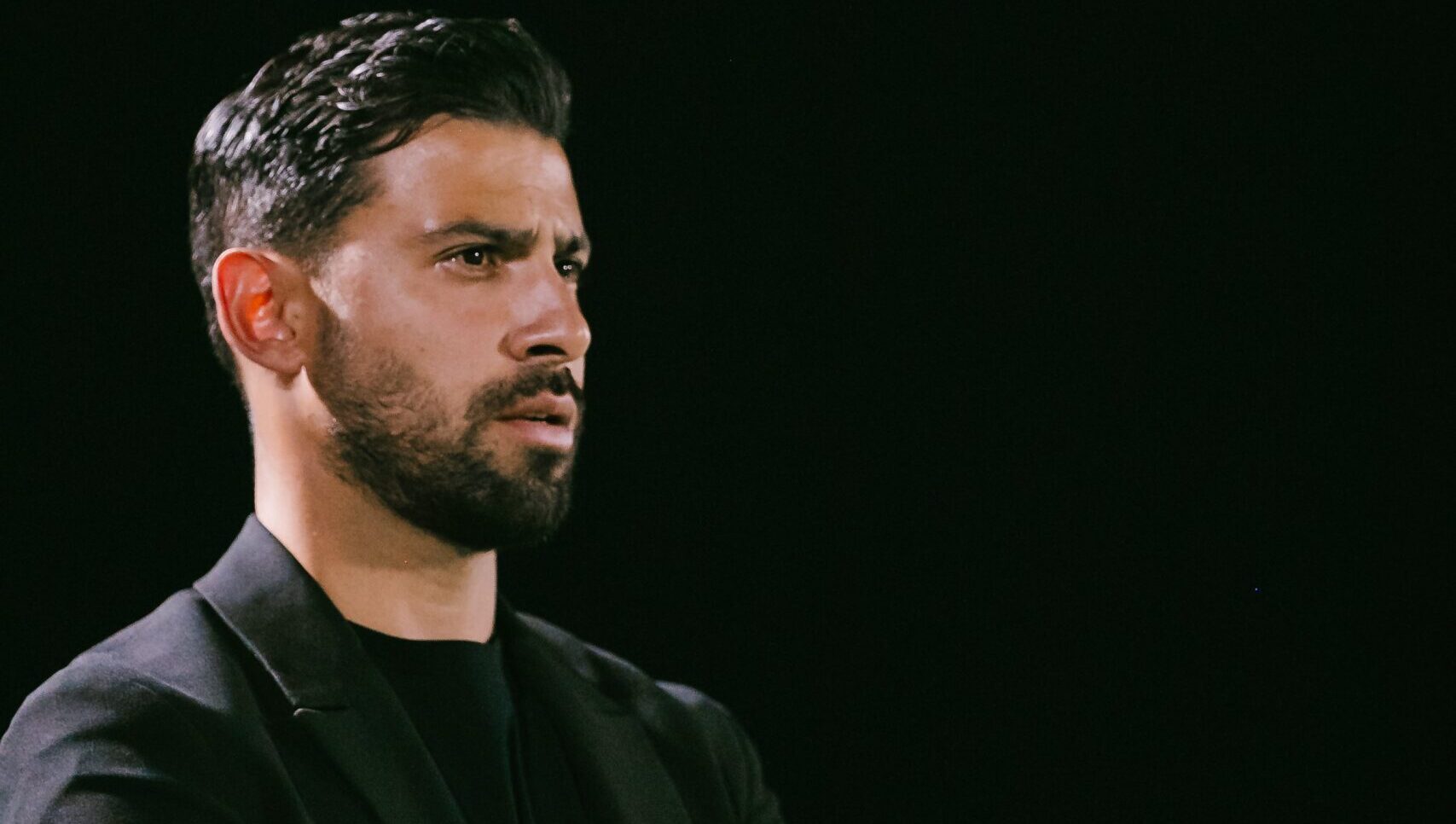Report: Group eyes pro soccer stadium in Phoenix area, legislation that could impact Coyotes arena
Apr 1, 2024, 9:32 AM
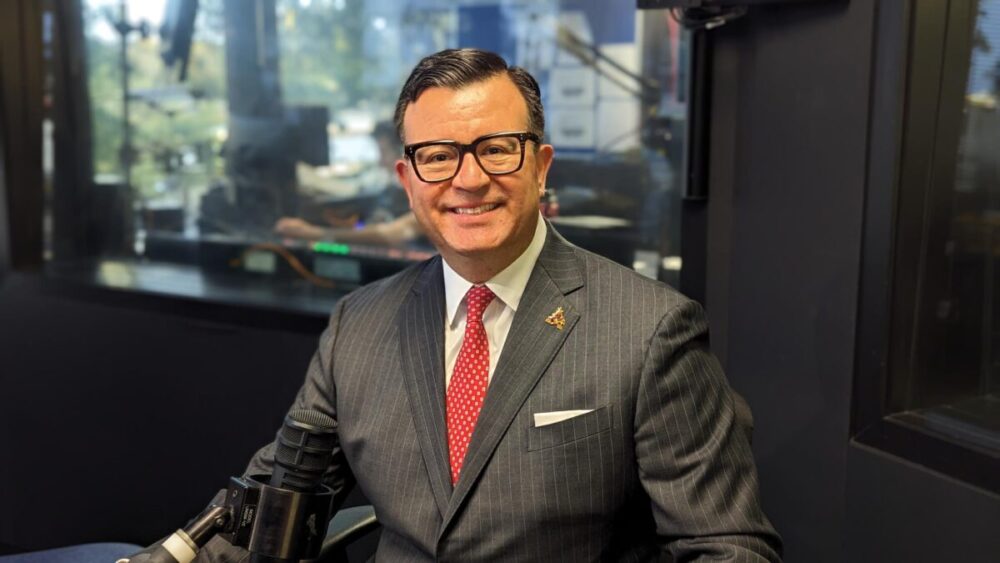
Arizona Coyotes CEO and president Xavier Gutierrez joined Arizona Sports' Bickley & Marotta on Friday, Feb. 23, 2024. (Jeremy Schnell/Arizona Sports)
(Jeremy Schnell/Arizona Sports)
A group led by a former Arizona Coyotes executive is eyeing Mesa land and legislation changes to potentially bring a professional soccer stadium to the Phoenix area. Both that group and the NHL team denied to Sports Business Journal that there is a connection to the Coyotes’ attempts to build a permanent home arena.
Former Coyotes chief business officer Nick Sakiewicz testified to the Arizona Senate Government Committee in February about legislation that would make it easier to create a theme park district that would change how the state approves theme parks and sports entertainment complexes. The bill was introduced by state Sen. Jake Hoffman.
The special taxing district can tax up to 9% for sales in its bounds to cover construction debts. At present, those theme park districts require approval from the county and the city.
The proposed legislation would require no city approval and only an OK from the county for the special taxing district to be issued, according to SBJ. To pass, the legislation would need approval from the Senate, the House and then Arizona Gov. Katie Hobbs.
Sakiewicz is currently CEO of USL Hartfort United and is a co-chair of a consortium eyeing unincorporated land near Mesa that could house pro soccer teams. According to SBJ, the potential land is currently a gravel pit owned by Johnson-Stewart Materials. The company is listed as the owner of land south of the Loop 202 Red Mountain Freeway at Alma School Road, near the Mesa Riverview shopping center.
The group is considering options other than professional soccer for the potential development but is investigating opportunities, Sakiewicz told SBJ.
Sakiewicz told SBJ following his testimony that The Pinebrook Group Managing Partners Malachy Burke and J.B. Gough plan on talking to MLS and the NWSL about the possibility of bringing expansion franchises to the property.
“It’s perfect timing for one of those or both of those leagues to land here,” Sakiewicz told the committee.
MLS did not respond to a request for comment on potential expansion to the Phoenix area. An NWSL spokesperson acknowledged the league is working with Inner Circle Sports to sell a 16th expansion franchise that would join the league alongside Boston in 2026 but did not address whether Phoenix is under consideration.
Sakiewicz added that Phoenix Rising, a USL Championship team playing in a temporary facility, could also be a potential tenant or partner, and that the venue could also host international matches. The Rising did not respond to a request for comment.
A lobbyist for Phoenix told SBJ that the city is “neutral” toward the proposed legislation and there are still amendments to be considered.
There is also no date for a potential vote.
How would this legislation impact the Arizona Coyotes’ goal of building a new arena in Phoenix?
Coyotes president and CEO Xavier Gutierrez told SBJ that the NHL franchise does not have any “connection, nor do we have any interest in being involved, with this legislation.”
The Coyotes are currently eying land in northeast Phoenix, near Loop 101 Pima Freeway and Scottsdale Road, with ambitions of building a new arena there.
The team has identified a tract of land that must be publicly posted for sale at least 10 weeks before an auction takes place. That would place the final sale in mid-June at the earliest.
Even if the Coyotes won that auction, the details of how the team would fund the construction would need to be fully revealed, though the franchise has said it will be self-funded — as it said for the failed Tempe arena district that didn’t pass a public vote.
There appear to be potential hurdles for attempting to build in Phoenix, but the legislation being pushed by Sakiewicz’s group could be helpful. Again, that’s if it were passed.
From SBJ:
This is significant because the City of Phoenix’s lease of the city-owned Footprint Center to the Suns prohibits the city from providing any economic assistance to a competing facility. The Suns declined to comment on whether they believe the city’s involvement in the establishment of a theme park district for the Coyotes would violate the lease agreement. Lease language aside, multiple sources suggested Phoenix might be reluctant to sign off on a mechanism that would help the Coyotes finance an entertainment district that has the potential to take away business from its downtown arena.
Gutierrez confirmed the team will “explore” the potential theme park district to fund the Coyotes’ potential arena.
Such a district, under current law, would require city and county approval to add a sales tax only within transactions on that district land.
The Coyotes are currently playing in Arizona State University-owned Mullett Arena, which seats about 5,000 people, and have an agreement to play there again next season. There is an extension option for 2025-26 as well.


